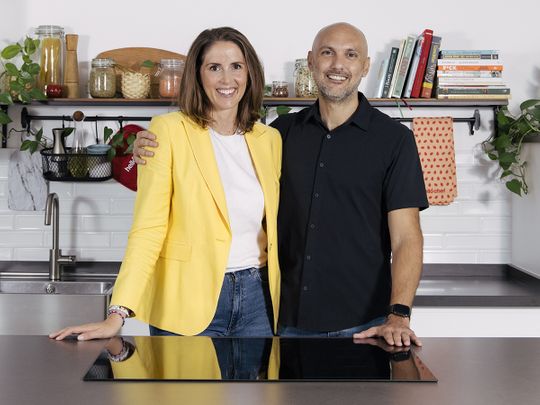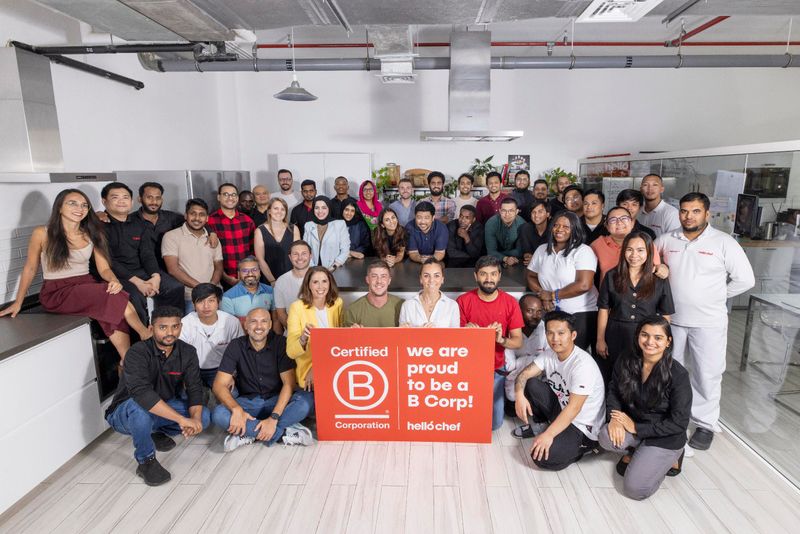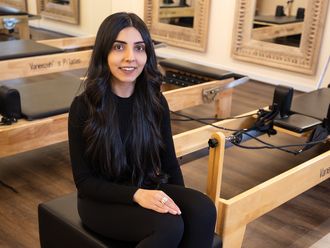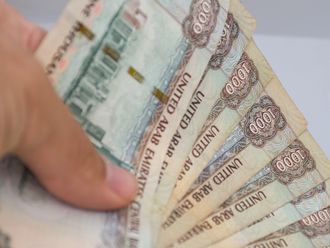
When Ahmed Al Akber and his wife Olivia Manner started delivering meal kits in 2015 out of their small home kitchen in Dubai, they least expected their co-owned online food box delivery service to one day cater to thousands of UAE residents every week and employ 80-plus staff.
Combining Finnish-French Manner’s love of sharing food with Bahraini-Irish Al Akber’s insights into running a business, the couple first started ‘Hello Chef!’ by delivering food boxes with pre-portioned ingredients to those who would otherwise spend more on buying ready-to-eat meals every day.
“Our first customers were our friends and neighbours, who supported us when we called and told them that we’d be handling the packaging of the food and products from our own home. Back then, it was around ten customers a week. Even though it was tiny, we loved it,” said Al Akber.
“As these were our friends, we would deliver the food ourselves and get feedback instantly. Delivering our boxes was a simple yet effective way to help us test whether we had a product that could grow into a viable business. We now serve thousands of homes every week across the UAE.”
During holidays in Ireland, his mother’s homeland, he also remembers buying magazines and bringing them back home to Bahrain to read. After his father advised, Al Akber would sell them after reading them to kids at school. “I would break even, so that funded my hobby of reading,” he said.
His wife Manner, who holds college degrees in hospitality management, worked for nearly a decade in corporate and worked in project management when at tech giant IBM in Finland and auditing giant EY (Ernst & Young) in Bahrain, before starting the meal-kit venture and now heading food product and innovation.
Manner worked in the food industry initially, taking up jobs during the weekends and summer in Finland. For Olivia, arriving in the UAE with two young children in 2014 and being unable to find the time to plan and prepare meals for her family, was what inspired her start the business during her maternity leave a year later.
Bootstrapping the start-up with personal funds
The couple bootstrapped their company with personal funds, revealed Al Akber, without going into details of how much was invested initially, but added that the largest expenses for them were the cost of the food ingredients, salaries, building technology for the platform and marketing.

We invested slowly and grew slowly to where we are now. The faster a company grows, the more money you have to invest
“When we started, the ‘opportunity cost’ of lost income (we previously worked in companies and were paid salaries) was the biggest investment. I can’t recall how much it was, but it was quite a lot considering that we didn’t have a salary for several years until the business was stable,” he added.
To properly evaluate opportunity costs, the costs and benefits of every option available should be considered and weighed against the others.
A simple example to understand ‘opportunity cost’: When a farmer chooses to plant wheat; the ‘opportunity cost’ is cost of planting a different crop, or an alternate use of the land and equipment.
Expenses changed as the business grew for the start-up founders. “One of our biggest expense was in improving the production facility. But looking to automate our processes saved us time and, in the long run, has been a great way to save money,” said Al Akber.
Tip #1: Growth sucks cash, so handle cash flow carefully
The ready-to-cook meal delivery platform recently also invested in a ‘B Corp’ certification, which involved investing in a consultant, the certificate, among others. “I’d estimate that getting us certified costs us around Dh1 million, including time spent and other expenses,” he said.

“We invested slowly and grew slowly to where we are now,” Al Akber added. “To start an e-commerce business, you don’t need much money, but to make it profitable and scale, you need millions of dirhams.
“The faster the company grows, the more money you have to invest. Receiving cash upfront from customers helps improve the service or product, and acquiring more customers is the most effective use of money.”
Tip #2: Sustained growth is more viable than shorter-term ‘hockey stick’ growth
Al Akber said he does not personally see success in his business having a rapid triple-digit rise each year. Instead, he stresses on the importance of focusing on consistent sustained growth year after year, over shorter-term ‘hockey stick growth’, any day of the year.
“Fast growth is exciting, and some people relish the challenge, but I would rather be predictable and constant for longer. This approach provides more time to iron out risks, inefficiencies and waste,” he explained.
Any personal finance advice? ‘Grow investments in broad-based index funds’
Al Akber, who said he does not tend to spend money on material things but rather spends his free time exercising, reading, and hiking with the family, also likes reading investment books and is most influenced by ‘A Random Walk Down Wall Street’ by renowned US economist Burton Malkiel.
“As company news and information quickly gets recorded and reflected on stock prices, it made investing in them directly nearly impossible for a layman like me, and earn unusual profits by beating the market,” he said.
"For me, it’s easy to follow the book’s advice and invest in ‘broad-based index funds’, which tend to have lower expenses and beat inflation. Most of my excess savings are in them as a great source of regular dividend pay-outs. But I would say to also read up on other views to get what works for you!”












